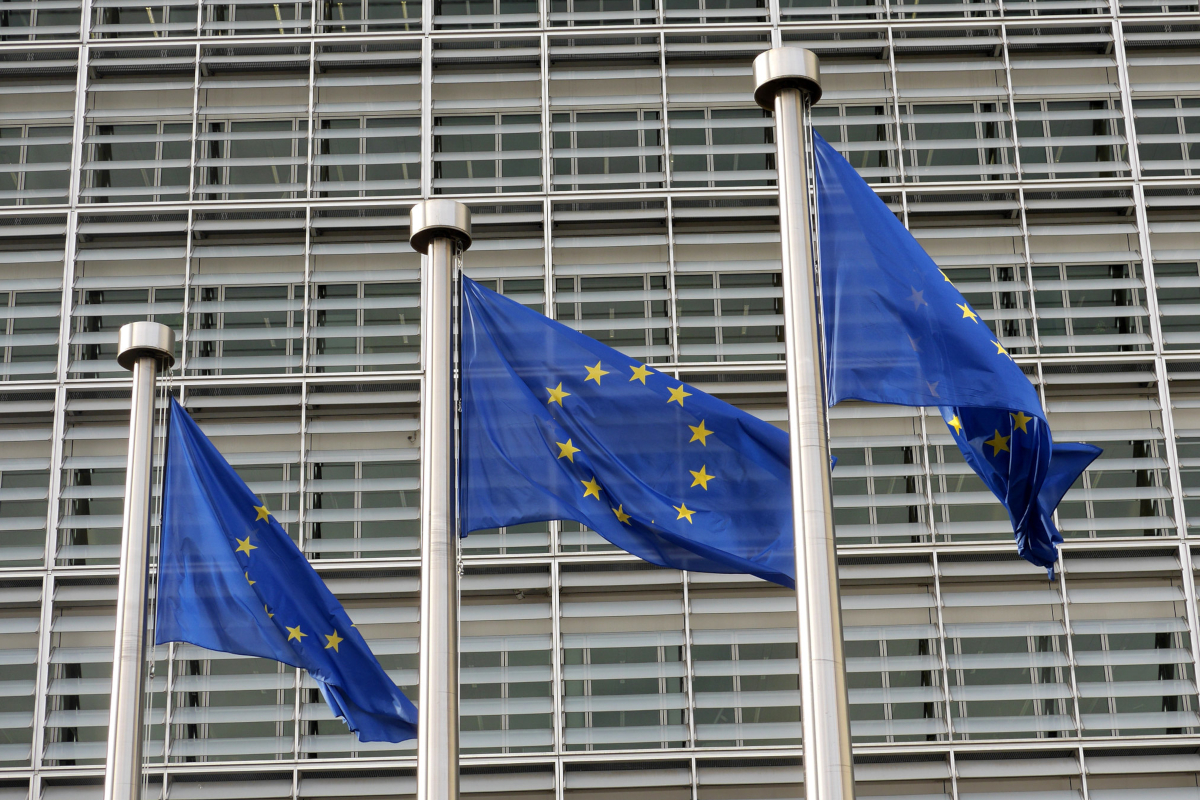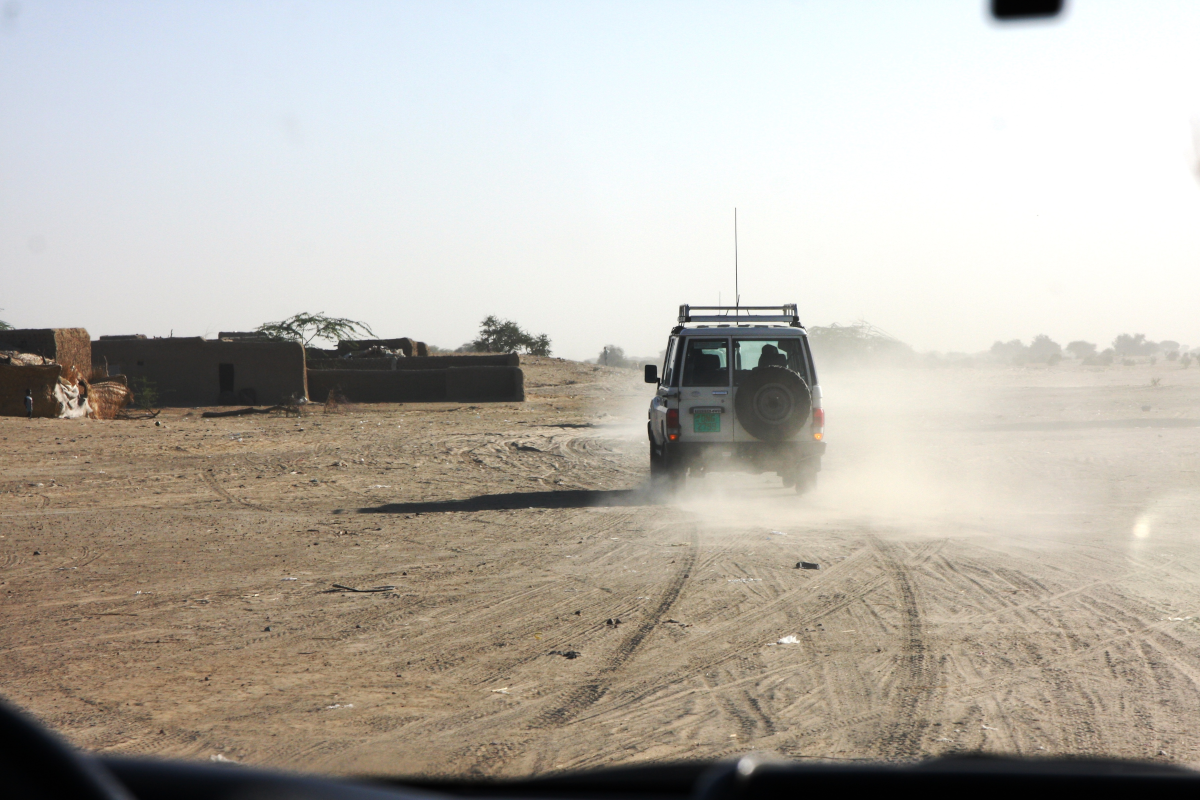EU: Deportations: overview of readmission cooperation in key countries
Topic
Country/Region
09 March 2022
An overview of cooperation on readmission agreements and arrangements with key countries, produced by the European Commission, show that the “external dimension” promoted under the EU’s Pact on Migration and Asylum treats non-cooperation with EU migration policy as worthy of sanction. Despite adopting a coercive outlook, these partnerships in which “readmission is an important component”, are described as “comprehensive, tailor-made and mutually beneficial”.
Support our work: become a Friend of Statewatch from as little as £1/€1 per month.

A letter of 28 January 2022 from the European Commission Director-General on Migration and Home Affairs, Monique Pariat, to Juan Lopez Aguilar, a Spanish MEP and chair of the European Parliament’s civil liberties (LIBE) committee, in preparation for an “exchange of views” meeting on 1 February, outlines developments on readmission with priority countries.
Pariat notes that “the overall level of enforcement of return decisions has decreased in 2021” due to the pandemic, although a positive trend of cooperation with key countries of origin and transit was confirmed. The Commission’s work on readmission cooperation implements commitments in the Pact, flanked by an EU strategy on voluntary return and reintegration which is implemented by the International Organization for Migration (IOM) and should develop further under Frontex direction in the near future.
Another development concerns Article 25a of the revised EU Visa Code, which obliges the Commission to monitor third countries’ cooperation with readmission of their own nationals and requires “intensified dialogue at political, technical and operational level”. Pariat’s letter identifies three countries as insufficiently cooperative, despite intensified dialogue at the “political, technical and operational” levels that followed adoption of the first report on third countries’ cooperation on readmission in February 2021: Bangladesh, Iraq, and the Gambia. Measures were adopted on 7 October 2021 regarding The Gambia; enhanced engagement and improvements resulted in such measures not being imposed for Bangladesh; and the Council is considering “measures on short-stay visas for Iraqi nationals”.
Readmission cooperation with key countries
Pariat’s letter notes that a second report assessing cooperation on readmission with 32 countries in 2020 was adopted on 21 December 2021 by the Commission and an annex outlines the state of play of cooperation with countries with which readmission agreements/arrangements are in place. Meetings (often by video conference) were held by the Joint Readmission Committee (JRC) and/or the Joint Working Group with Ivory Coast, Armenia, Sri Lanka, Georgia, Ukraine, Montenegro and Bosnia-Herzegovina. Accounts of cooperation on readmission with countries that have readmission agreements with the EU in 2020 provide evidence of a policy outlook that subordinates human rights to returns, while effectiveness trumps compliance with international law.
The readmission cooperation overview notes the following:
Turkey does not fully comply with its readmission agreement, particularly regarding the third country nationals clause and preventing irregular departures to Cyprus. Joint Readmission Committee hearings are not being held as they should, and Turkey should respect its bilateral readmission obligations with Greece. Turkey’s level of cooperation is hard to assess without JRC meetings, but member states report uneven cooperation on readmission requests. Despite this, the EU-Turkey statement “remains of paramount importance” in migration management efforts, and the EU has provided financial support to Turkey “to host over 3.6 million Syrians and refugees from other countries”.
A JRC meeting with Pakistan resolved to improve cooperation regarding “deadlines for replies, providing justifications in case of refusals” and issuing visas for escorts. A second phase of implementation by the IOM of the Readmission Case Management System (RCMS) is underway, to expand use of this system from four pilot states to fourteen member states that expressed an interest, although the pandemic has caused delays.
Regarding Russia, challenges have been identified including a failure to comply with time limits and refusals to readmit Russian nationals. Cooperation has improved after it slowed down in recent years, but Russia hinders implementation through new requirements, like visas for escorts. The last JRC-Russia meeting was in November 2019.
For eastern partnership countries, at a JRC-Georgia meeting in November 2021, Georgian cooperation was commended as “excellent”: travel document issuing rates rose from 71% to 74% in 2020; the RCMS used by 19 member states was functioning; significant efforts to prevent irregular migration were named; a new Entry-Exit law came into force in 2021 and there was close bilateral cooperation on border management with individual member states. A continued concern was the “high number of unfounded [asylum] applications” by Georgian nationals, and their involvement in organised crime. It is not clear whether asylum applications were actually unfounded, or whether they are assumed to be unfounded due to improving cooperation on readmission.
“Good implementation” of the readmission agreement was certified regarding Armenia at a June 2021 videoconference JRC meeting, despite a suspension of returns for some months early in the pandemic and a fall in the issuing of travel documents for returns to 57% in 2020 (from 68%). Armenia’s RCMS, developed in 2018, is now used by eight EU member states.
Cooperation “decreased” with Azerbaijan, the rate of document issuance for returns fell to 41% (from 54% in 2019) and returns also decreased, due to a pandemic-related suspension in 2020 that lasted for “almost a year”. Testing for an RCMS is underway.
Readmission cooperation with Moldova was working well, with an increase in travel document issuing to 60% in 2020 (up from 40%) and despite a high number of asylum applications (4,835 in 2020) that remains a point of concern for member states.
Regarding Ukraine (a situation that is bound to change after the Russian invasion), cooperation was deemed positive at a November 2021 videoconference meeting, based on statistical indicators and the roll-out of a RCMS. Issues deemed relevant to returns include travel documents for children of Ukrainian nationals born in EU states; establishing Ukrainian nationality for people from Lugansk, Donetsk and Crimea, and the duration of substitute documentation. Both the number of return decisions and effective returns affecting Ukrainian nationals dropped in 2020. The problem of armed conflict and occupation in eastern Ukraine, which have come under the spotlight following this week’s Russian invasion of the country, highlights the cynicism of EU plans to “return” people from this region despite knowledge of their plight.
Belarus unilaterally suspended its readmission agreement with the EU in December 2021 and cooperation has “essentially stopped” with most MSs, reversing “previously good cooperation”. The fact that the EU was seeking “good cooperation” to enact deportations to an authoritarian regime prior to the latest “crisis” will not surprise close observers of EU migration policy.
The Western Balkans region saw a “successful performance of all existing EU readmission agreements,” despite effective returns decreasing due to “increased volumes of decisions,” a backlog, possible secondary movements, obstacles in some member states and pandemic restrictions. Nonetheless cooperation is deemed “satisfactory and solid” with Albania, Bosnia-Herzegovina, Montenegro, North Macedonia and Serbia.
Satisfaction was expressed regarding cooperation on readmission with Cape Verde, and it has improved with Sri Lanka, where an RCMS system was launched in 2020 and a “positive response rate to readmission requests” was recorded (92%) in 2021. Cooperation with Sri Lanka is deemed satisfactory despite a fall in returns and travel document issuing due to pandemic restrictions.
Towards new readmission agreements – more setbacks than progress
Regarding negotiations to establish new readmission agreements, suitable dates are being sought to relaunch a wider dialogue on migration and mobility with Morocco and the parallel negotiations of a readmission and a visa facilitation agreement that have been on hold since 2015.
Five “virtual” rounds of negotiations have taken place with Nigeria, but they have ground to a standstill (“Nigeria shows little openness towards compromise”) and the country introduced a pandemic-related moratorium on returns in December 2021.
Regarding Tunisia, after “good progress at a technical level in 2018”, the process was put on hold due to elections, the pandemic context and a “lack of interlocutors”, although the Commission wishes to relaunch the process within a “wider dialogue on migration”.
Negotiations with Algeria have never started, beyond an informal dialogue on migration and exchanges on irregular migration, and the same applies to Jordan, where it is unlikely that the parallel negotiations envisaged for a readmission agreement and a visa facilitation agreement will resume “in the foreseeable future”.
Talks with China are in an “exploratory phase” despite three rounds of talks under the EU-China High Level Dialogue on Migration and Mobility since 2017 to develop negotiating directives that date back to 2002 for an agreement to combat irregular immigration (including readmission).
Readmission arrangements
Readmission “arrangements” are forms of cooperation at the technical and operative levels that seek to produce “effective” outcomes. The countries concerned (Afghanistan, Bangladesh, Ethiopia, Guinea, The Gambia and Ivory Coast) indicate a likelihood that “arrangements” (procedures, roadmaps, “joint ways forward”, executive statements, etc.) are preferred for countries to which returns are problematic from a formal, legal perspective – these more informal cooperation mechanisms do not require any parliamentary scrutiny.
Implementation of the Joint Declaration on Migration signed in April 2021 with Afghanistan has been suspended, along with returns, “for now and for the foreseeable future” following the Taliban’s coming to power in August 2021. It is significant that a deal to return Afghan citizens was struck when the security situation in Afghanistan was known to be deteriorating, as part of a comprehensive plan, followed by a decision to suspend returns to Afghanistan, but to try to continue deporting Afghans to other third countries when agreements allow this.
As noted above, implementation of the monitoring mechanism under Article 25a of the Visa Code led the Commission to propose the adoption of restrictive visa measures for Bangladesh by the Council due to inadequate cooperation on readmission in 2019. The EU side outlined progress to be achieved to avoid adoption of such measures in June 2021. Bangladesh “responded constructively” despite difficulties caused by the pandemic, staff shortages and technical difficulties with the RCMS. Its commitments included implementing Standard Operational Procedures on readmission and more frequent meetings. Improved readmission cooperation led the Council to decide not to impose restrictive visa measures in November 2021.
Cooperation with Ethiopia on readmissions “has proven difficult”, the document states. The Ethiopian administration guaranteed it would address existing problems in three Joint Working Group meetings in 2019 and 2020, but effective return enforcement rates dropped to 14% in 2020 (1,100 return decisions, 155 of them enforced, compared to 17% in 2019, with 1,415 return decisions, 240 of them enforced). Returns were on hold due to the pandemic in September and October 2020, but limited returns in cases cleared before the pandemic went ahead. Readmission request processing has not resumed, increasing the backlog, and arrangements between the Commission and Ethiopian counterparts “were not honoured”. Political re-engagement with Ethiopian authorities will be “re-examined” following inter-state conflict (with Eritrea) and a state of emergency declared in November 2021. Again, conditions on the ground, human rights abuses and intermittent armed conflict make the return goals pursued in this file deeply problematic.
A readmission arrangement on returns with Guinea came into force in 2017 and concerns a country towards which returns may be unsafe, with which “political engagement” should be “re-examined” following a coup d’état in September 2021. The arrival of Guinean nationals decreased sharply in 2019 (from over 13,000 in the two previous years, down to 846), before increasing gradually again in 2020 (1,113) and 2021 (2,379, Jan-Oct). Return decisions issued and enforced returns have both decreased (respectively, 9,695 and 275 in 2019; 6,895 and 170 in 2020), with return decision enforcement rates as low as 3% in 2019 and 2% in 2020.
Restrictive measures on the issuing of short-stay visas to Gambian nationals were adopted by the Council on 7 October 2021 and have been in force since 1 November 2021, following cooperation deemed “insufficient”. The return decision enforcement rate decreased from 12% to 7% in 2020, when 2,765 return decisions led to 195 deportations. There is a backlog of people to be deported to The Gambia in member states, which also results from a moratorium on forced returns from the EU: in April 2021, Gambian authorities declared that they could not accept returnees, a moratorium that was confirmed as lasting until the December 2021 elections. The EU readmission agreement has therefore “hardly been tested”, despite “continuous engagement” to resume return flights, while considering Gambian concerns about capacity and member states’ “needs” to return Gambian nationals residing illegally in the EU. Thus, The Gambia will be a testing ground for the EU’s “carrot and stick” approach to treat non-compliance with the EU’s readmission demands as leading to penalties.
A readmission arrangement with the Ivory Coast has been in force since 2018. Features of this cooperation include exploring the possibility of introducing a RCMS, although “more coherent and transparent procedures are required”, alongside “more even cooperation” with all member states. The arrival of “irregular” Ivorian nationals is described as “high” over the last years, despite decreasing from over 13,000 in 2017 to 1,500 in 2019, before increasing slightly again in 2020 (2,225) and 2021 (3,339, Jan-Oct). Return orders issued to Ivorian nationals increased yearly until 2019 (8,290) before falling in 2020 (5,625); the same applied to effective returns, which rose until 2019 (295) before dropping in 2020 (120). The return enforcement rate halved from 4% in 2019 to 2% in 2020.
Irregular border crossings (Frontex data) - 2nd annex
Frontex data on irregular border crossings shows a sizeable and steady decrease from 1,822,102 in 2015 to 125,113 in 2020, when they fell by 12% compared to 2019 (141,741). In 2020, arrivals fell from several countries of origin (Syria, Afghanistan, Somalia, Turkey, Pakistan, Sudan, Iraq, Cameroon, Congo (Kinshasa), Albania, Iran, Congo (Brazzaville), Senegal, Ghana and Gambia); conversely, arrivals from Tunisia, Algeria, Bangladesh, Morocco, Ivory Coast, Mali, Guinea, Nigeria, Eritrea, Libya and Sierra Leone rose. The most numerous arrivals were from Syria (21,581), Morocco (17,121), Algeria (13,247), Tunisia (13,191) and Afghanistan (10,089).
The accuracy of this data is questionable due to pushback practices and denial of access to asylum that are becoming commonplace in frontline member states, from the Spanish enclaves of Ceuta and Melilla to Italy and Greece, and the Balkan region and eastern EU frontline states, up to Poland and Latvia. These overall figures do not appear to justify the effort and resources deployed to increase the rate of returns, often to unsafe situations, as shown by examining readmission agreements and arrangements cooperation monitoring documents.
Financing for returns, readmission and related activities - 3rd annex
EU support to member states in this area is financial (through the Asylum, Migration and Integration Fund, AMIF, 2014-20; now replaced by the Asylum and Migration Fund, 2021-27) and operational (through Frontex, the European Border and Coast Guard Agency).
Member states have used just over €1 billion of the AMIF’s total pot of €7 billion to “enhance fair and effective return strategies”. This funding covers various return activities (including reintegration) and support for national return efforts and joint initiatives including the European Return and Reintegration Network (ERRIN), the European Integrated Return Management Initiative (EURINT) and the European Return Liaison Officers Network (EURLO). Extensive funding is provided to develop the deportation facet of immigration policies.
Commission support via “indirect management” includes funding for readmissions under the Readmission Capacity Building Facility (EURCAP). Third countries with which the EU seeks improvement have been allocated €38.5 million. The International Organization for Migration (IOM) implements EURCAP by preparing and implementing readmission agreements and/or commitments with priority third countries (for example by setting up RCMSs in Bangladesh, Pakistan, Sri Lanka and Azerbaijan, capacity building for governmental migration management in The Gambia). These tools are described as “successful” to date, and as having improved “effectiveness and transparency” in “readmission cooperation and processes”.
Regarding operational support provided by Frontex to MSs for return support activities, €57.5 million were allocated in the Agency’s 2021 budget. The agency has supported aspects of returns including “pre-return measures, carrying out return operations” and “post-return measures”, including “reintegration support”.
The activities covered by this assistance are: “identification missions, exchange of return experts… organisation of scheduled and charter flights”, technical support to partner countries for readmission purposes and return operations training for MS and partner countries’ staff and authorities. Frontex will also take over ERRIN activity implementation from IOM, to ensure the “benefits” of the network extend to all membes states. “Tailored return and reintegration assistance” is envisaged for returnees in cooperation with reintegration service providers in third countries, and since May 2021 Frontex reintegration support has been developed and piloted through its Joint Reintegration Services (JRS).
Documentation
- Letter from the European Commission, DG Migration and Home Affairs to Mr. Lopez Aguilar, subject: EU readmission cooperation with partner countries – state of play (Ares(2022)656813, 28 January 2022, pdf)
- Annex 1: Information regarding the implementation of existing EU readmission agreements and arrangements and ongoing negotiations (since the previous report to the LIBE committee), March 2021 to December 2021
- Annex 2: Data on Irregular Border Crossings (source: Frontex)
- Annex 3: Information on the EU financing for return, readmission and related activities
Image: LIBER Europe, CC BY 2.0
Our work is only possible with your support.
Become a Friend of Statewatch from as little as £1/€1 per month.
Spotted an error? If you've spotted a problem with this page, just click once to let us know.

